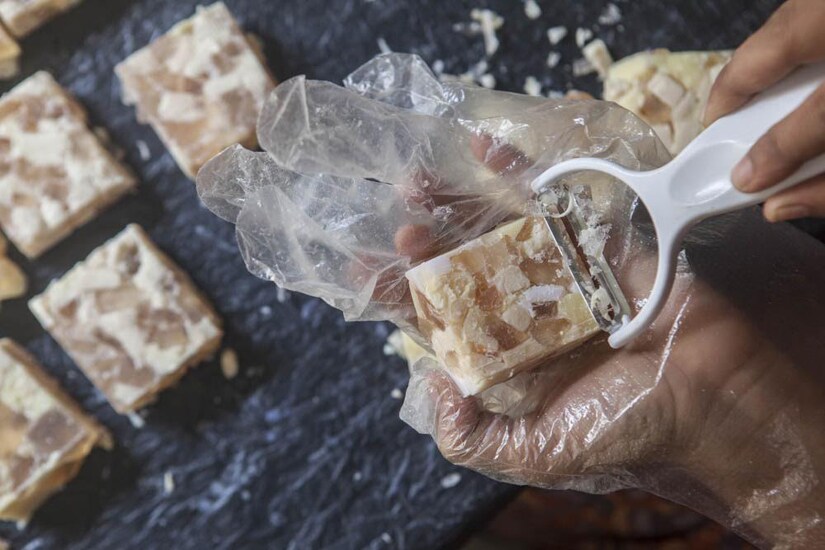Erin Zaikis was 19 when she first came across the slums of Mumbai and the lives it encompassed. It wasn’t a first-hand experience though; it was through Danny Boyle’s lens. Slumdog Millionaire exposed her to a different world altogether. “It was eye-opening. It took me out of the bubble I was living in,” says Zaikis recalling the first time she came across the movie. As it would eventually turn out, it was bubbles — albeit of a different kind — that would bring her back to India and change the lives of many. [caption id=“attachment_2396058” align=“alignleft” width=“380”]  Erin Zaikis[/caption] In the summer of 2009, she travelled to India and stated working with a Parsi-run orphanage, Seva Sadan. She recalls it being a challenging experience, “I had this moment where I realised that, instead of feeling guilty about my privilege, maybe I can do something to help." She returned to the States, studied Public Policy and eventually landed a job at ECPAT International. In 2013, the job took her to Thailand, where she had the chance to visit villages and Burmese refugee camps. The poor living conditions at the camps were no surprise, but an incident there changed her life. Zaikis vividly recalls going to a washroom in one the camps and being unable to locate soap. Upon enquiring with children, she realised not only that there was no soap in the camps, but most of them were clueless as to what soap was. Zaikis went to the nearest town and bought all the soap available with $30 she had and distributed it among the children and taught them how to use it. After illness forced her to return briefly to the States, she immediately began researching soap recycling. “I became the ‘crazy soap lady’," says Zaikis of the time when she was trying to get people to listen to her story. She started recycling soap in her apartment and sold them online. The money collected, was distributed to various charities in Thailand, Ghana and Mumbai. But soon she felt a lack of oversight over where the money actually ending up. Zaikis also believes this to be the problem with large organisations who engage in similar projects. Apart from a lack of monitoring system and an impersonal method of distribution, the cost of shipping out products (like soap) to another country is quite high. To address the problem and have more control over the distribution process, Zaikis returned to India in 2014, and started Sundara, a non-profit organisation. The aim was to produce recycled soap locally as efficiently and effectively as possible, and also spread awareness about hygiene. It was a difficult start. Weeks were spent to experimenting with different methods of recycling. But ultimately, the process was bought down from two to three hours a batch to seven minutes a batch, and according to Zaikis, the process can be replicated in one’s own kitchen.  All you need is a potato peeler, a bleach solution and a crock pot. The peeler is used to remove the top layer of the used soap, which might contain any infectant. The bleach solution and the crock pot are used to melt old soap and eventually covert it into new bars.  But in order to recycle soap, you need soap. The best source remains hotels, which dump tonnes of recyclable soap on a regular basis. But the hotels were reluctant to give away used soap citing health concerns and would often cancel meetings at the last movement. Even more difficult was to employ people, especially women, for the workshop. There was great reluctance among people Zaikis approached to work with an organisation recycling soap. Most of them had never heard of such a project before. But after much searching and with the help of another organisation, REAP, Sundara, which remains committed to employing women from disadvantaged background, finally assembled a workforce.  But this was still not the end of all the troubles. Zaikis had initially started working with a $10,000 grant by LinkedIn, but had to looks for other source soon. Today, funding for Sundara comes from donations, fundraisers and, on a few occasions, from the hotels involved. Crowd-funding, according to Zaikis, remains one of the more helpful sources of funding. The organisation does not have a tie up with any government body but are very much open to the prospectus in the future.  Since its inception in 2014, the organisation has distributed thousands of bars of soap and has taken their hygiene drive to villages like Dolkhamb, Shilonda, Sadakipada, Bendgaon and Amrunpada near Mumbai. Over 30 schools in have been involved with hundreds of hygiene lessons delivered.   But one thing that still bothers Zaikis is the attitude of Indians towards her work, more importantly, her work as an American. People are reluctant to work for her and quick to pass judgment. ‘An American girl selling her American ideas,’ is how people boil down her entire work. “It’s not like I’m selling divorce,” she complains but remains determined to continue her work. Sundara remains a community driven project, supporting women and reaching out to children most venerable to diseases; and hand washing remains one of the most basic and practical method to avoid them.  As of now, Sundara operates only in Mumbai, but interest has been shown by people from Delhi and Bangalore. Zaikis, who is 25 now and lives between New York and Mumbai is cautious of expansion, but committed to help as many as she can.
Slumdog Millionaire inspired Erin Zaikis to travel to Mumbai when she was 19. Today, at 25, she is changing lives of many in the city with an unlikely commodity- soap.
Advertisement
End of Article


)

)
)
)
)
)
)
)
)



